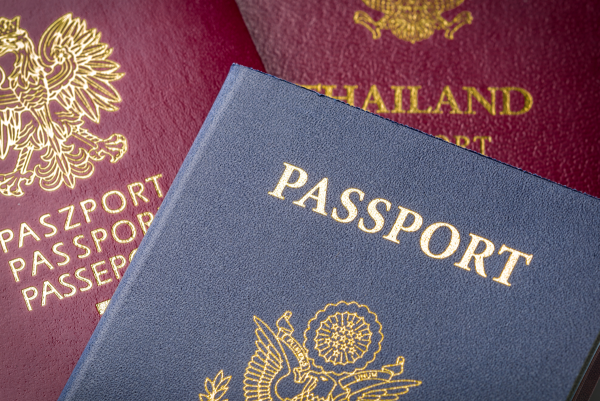Passport

Your passport needs to be valid for at least 6 months at the time of departure. In many countries this is a requirement so it is best to keep your passport valid by this criteria. Your travel agent should have this on record and keep you informed. Ask your assistant to keep this on file also.
The application and renewal forms are available at post offices in most countries and online. You will need appropriate sized photos as well.
In some countries, you can apply for an “extended” passport, sometimes known as a “frequent traveler” passport. This passport type has double the number of pages as a regular passport. If you plan to travel internationally extensively, this may be a good option. Most countries have either 5 or 10 year expiry dated passports and sometimes you can chose which you would prefer.
In some countries, if you run out of pages in a current passport prior to 6 months prior to the expiry date, you will be able to have additional pages inserted into the passport rather than apply for a new passport. Remember that you will need to hand your passport in for a number of days or even weeks for this to occur. Be sure that you do not need to travel in that time period as this will limit your ability to travel.
Losing your passport these days will incur waiting periods and in some cases substantial fines while a new passport is issued. After an investigation into the whereabouts of the old one, this can be completed. Passports are no longer easily or quickly re-issued to minimize the likelihood of passport fraud. This will be inconvenient at best and career limiting at worst. So keep your passport in a safe place both while you travel and at home.
Passports are progressing with technological improvements. Microchips are being embedded in all newly issued passports and are required for entry into some countries (eg USA). The chip holds digitized personal and passport details and your photograph. As a result of this technology, many airports in the world have “smart gates” with electronic readers for passports. This means you do not have to interact with an immigration officer and the lines are often faster as a result. There will be a sign to these “smart gate” lines to let you know which countries passports they accept for electronic reader stations. Not all countries’ passports will be processed in this way. Check the sign or ask someone as you do not want to line up in that line only to find you should be in a different line.
Australia is leading the way in the development of the next generation passport which incorporates biometrics. This allows facial recognition. In UK there is retina scanning for passport control. These technologies tend to be for outbound passengers from the country of origin and cannot be used for other passport holders. For example, Retina Scanning outbound from UK is only available for use by UK passport holders. Ultimately this will speed up the entry process as you will walk through a “Smart Gate”. The “smart gate” will match a live image of your face to the information stored in your e-passport. Then it will only stop you for questioning by a Immigration official if there is an issue. This will be rolled out to other countries.